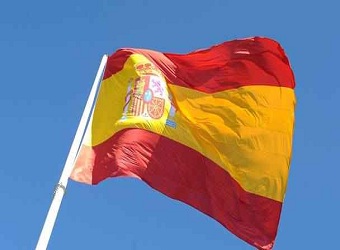Spain’s central government has said it will move to halt Catalonia’s autonomy after the regional leader failed to withdraw a bid for independence.
In a statement on Spain’s government website Thursday morning, Madrid said that the Catalan leader Carles Puigdemont had refused to comply with a request to confirm whether the region had declared independence.
Consequently, it said it would “continue with the procedures provided for in Article 155 of the constitution to restore legality in the self-government of Catalonia.” Meaning, the government is set to meet Saturday to propose measures to strip Catalonia of some powers and officially trigger Article 155 of the Constitution.
Puigdemont was given until 10 a.m. local time Thursday (4 a.m. ET) to withdraw the declaration of independence he made — albeit ambiguously — last week.
Before the deadline passed Puigdemont said the regional parliament could vote on a formal declaration of independence from Spain if no talks were held between Catalonia and Madrid. He again failed to clarify whether the region had declared independence.
Equivocal response
Puigdemont refused to clarify his government’s intentions at an earlier deadline on Monday, at which point the Spanish government gave him one last chance to retract his equivocal response.
With no last-minute change of heart, Rajoy has said he will invoke Article 155 of the Spanish Constitution — its “nuclear option” that would allow Madrid to take control of the region, following approval from the Spanish Senate.
The effects of Article 155 are not likely to be felt for several days due to it requiring approval from the upper house of parliament. The unprecedented triggering of Article 155 is a constitutional crisis for Spain, however, and is likely to spook financial markets. There could also be more social unrest in the wealthy northeastern region.
Crisis a long-time coming
The current political crisis facing Catalonia and Spain has been long-coming. There has been a strong sense of separatism and regional identity in Catalonia, a wealthy region in the northeast of Spain, for decades. There have also been several unrecognized and unofficial referenda on independence in recent years.
The latest vote took place October 1 — 90 percent of 2.26 million regional voters opted for independence. Turnout was low at around 43 percent, however, and thousands of Catalans also took to the streets to protest against independence.
Puigdemont caused confusion following the vote by appearing to declare independence and then immediately suspend it, calling for dialogue with Spain, a request so far denied. His request for the European Union to mediate in the dispute has also fallen on deaf ears with the EU supporting the Rajoy government and saying it would not recognize an independent Catalonia.
Source: CNBC



